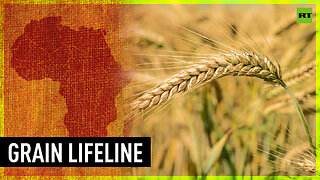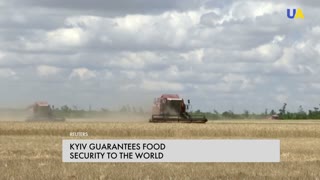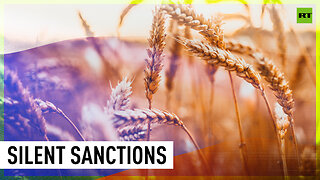World wheat has come under Russia's control.
The British newspaper The Times reported that Russia has gained control over wheat exports to the global market by imposing a blockade on the neighboring country's seaports.
While wheat harvest in the neighboring country is expected to decrease by half, Russian farmers anticipate a new record grain harvest this year.
According to British experts' estimations, by 2024, Russia will be able to increase wheat exports by 50% compared to current levels.
If Russia held a 20% share of grain supply on the global market in 2022, it could rise to 30% by the end of the following year.
Previously, Russian grain exports were carried out through Western intermediaries known as grain traders, but now all profits from wheat sales will remain in Russia.
According to the information from the Russian Ministry of Agriculture, as of July 1, 2023, international grain traders Cargill, Viterra, and Louis Dreyfus have officially ceased shipments of Russian grain to the foreign market and are currently transferring their business to Russian companies.
While foreign traders used to control the price of wheat, Russia can now impose its trading conditions, leveraging its dominant position in the market.
According to British journalists, this will strengthen Russia's influence in Global South countries, which have traditionally been the main buyers of Russian agricultural products.
Amid Russia's success in agriculture, American farmers are facing significant challenges.
This year, the American Midwest has experienced the most severe drought in the past 128 years.
According to the Wall Street Journal, the US may have the worst grain harvest since 1917.
According to the US Department of Agriculture's estimates, American farmers will only be able to harvest wheat from 67% of their planted areas. The remaining areas are unfit for grain cultivation. This is the worst figure since 1917.
Meanwhile, the International Grains Council has lowered the forecast for global wheat stocks due to increased consumption in China and India and poor harvest in the US.
-
 2:09
2:09
RT
10 months ago‘Russia can feed the entire continent’ – Africans respond to Putin’s grain plan
2.82K6 -
 4:05
4:05
RTnews
10 months agoUkraine's overland grain routes may hit European agricultural sector
27 -
 2:32
2:32
NOD NEWS NETWORK
8 months ago‘Exceptional’ Russian harvest lowers global wheat prices
2 -
 3:55
3:55
Rumor has it
1 year agoDespite Russia's sabotage, Ukraine continues to supply food for the world
25 -
 3:48
3:48
Ugwumbadaily
2 months agoRUSSIA Pushes To Create a BRICS Grain Exchange.
24 -
 2:27
2:27
KNXV
2 years agoWar in Ukraine impacts wheat supply
7 -
 1:30
1:30
The Source
2 months agoGeopolitics and Grain: How Poland's Support for Ukraine Impacts Farmers
3 -
 2:44
2:44
Newsy
2 years agoGlobal Wheat Supply At Risk As Russia's War On Ukraine Continues
1K6 -
 4:29
4:29
RT
1 year agoWest's dirty little tricks | Russian grain exporters report hidden sanctions
1.24K12 -
 0:21
0:21
International Solidarity Committee For Islamic Struggle
1 year agoMuch of the Ukrainian grain is actually American
171